Looking For Manufacturing Production Workers?
Keep your factory at peak performance with our skilled manufacturing production workers.
All of our personnel are carefully screened and have the experience required to hit the ground running. Whether you’re looking for short-term or long-term staffing, we have a solution that will fit your needs.


Regional Supplemental ServicesOn-Demand Reliable Workforce

Choose RSS to fill your temporary manufacturing production worker positions
Keep your factory running smoothly with a wide variety of our skilled temporary production employees, including:
Assembly Line Workers
Light Industrial Employees
Forklift Operators
Packing Operators
Machine Operators
Sanitation Workers
Warehouse/Distribution Workers
Material Handlers
Various additional manufacturing production positions
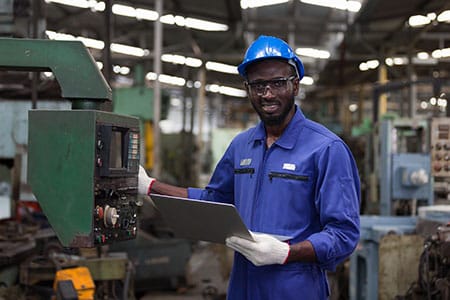
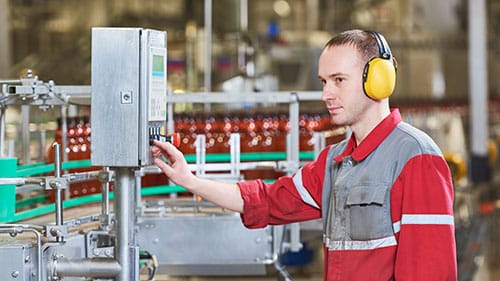
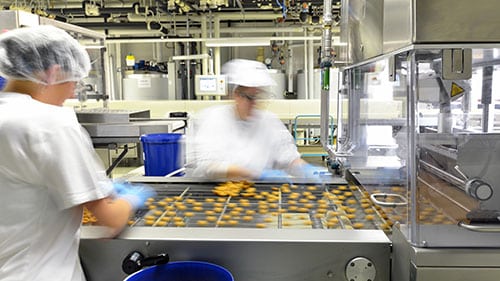
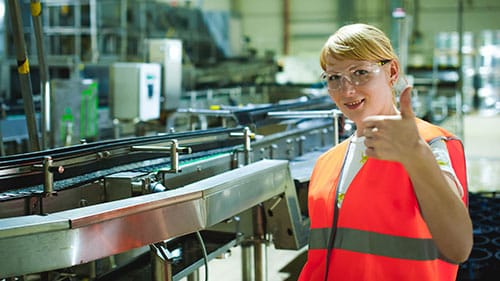
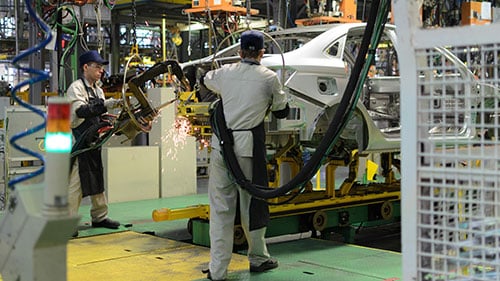
Proven track record
Proven track record of success in placing hard-to-find candidates in a wide variety of industries
Strategies for long-term employment
Strategies for long-term employment so you can keep your staff on board for as long as you need them
Immediate assistance
Immediate assistance in the event of an emergency so you can rest assured that your business will remain productive
Cost-cutting strategies
Cost-cutting strategies that can help you save money on your staffing expenses
Seasonal job protection
Seasonal job protection so you don’t have to worry about your employees being laid off at the end of the season
A family-owned business
A family-owned business committed to providing you with exceptional service
Client Testimonials
Frequently Asked Questions
What type of job is a production worker?
A production worker is an individual who operates equipment, machinery, and tools, or directly works on products to assemble, craft, or produce them in a manufacturing setting. Their primary role is to ensure that goods are produced efficiently, safely, and meet the organization’s standards.
Duties and Responsibilities of a Production Worker:
-
Operating Machinery: They may handle equipment or machinery specific to the industry or production line they work in.
-
Manual Production Tasks: This can include tasks like loading and unloading items, assembling products, or ensuring machines are fed the required materials.
-
Quality Control: Production workers often inspect products to ensure they meet quality standards and remove defective items.
-
Maintenance and Cleaning: Keeping the work area clean and ensuring machinery is maintained is often part of their duties.
-
Reporting and Documentation: They might need to keep records of products produced, machine operations, or report any issues or deviations in the production process.
-
Adherence to Safety: Following safety protocols and wearing required protective gear is essential, especially since they work around potentially hazardous machinery or materials.
Types of Production Workers:
-
Assembler: Puts together parts of products.
-
Fabricator: Bends, cuts, or molds product parts.
-
Machinist: Operates heavy machinery to produce parts or goods.
-
Quality Control Inspector: Checks products for defects or deviations.
-
Packer: Packs finished products for shipment.
Production workers can be found in various industries, including automotive, food and beverage, electronics, textiles, and more. The specific tasks a production worker will perform can vary significantly based on the industry, the product being manufactured, and the size of the company.
Education and Training:
To become a production worker, a high school diploma or equivalent is typically required. However, some positions may not have any formal education prerequisites. Depending on the industry or the intricacy of the machinery, on-the-job training is usually provided. Some specialized roles, like machinists, might require vocational training or apprenticeships.
Skills Required:
- Attention to Detail: It’s essential to produce quality products and notice any inconsistencies or defects.
- Physical Stamina: Many production roles are physically demanding, requiring workers to stand for extended periods or lift heavy objects.
- Dexterity: Hand-eye coordination is crucial, especially for jobs requiring assembly or machine operation.
- Problem-solving: Being able to quickly identify and troubleshoot issues with machinery or the production process is beneficial.
- Teamwork: Production often involves working as part of a team, so collaboration and communication are key.
Career Advancement:
With experience and further training, production workers can advance to supervisory or managerial roles within the production facility. Some might also specialize in more technical roles, like machinery maintenance or quality assurance.
Is a factory worker a manufacturer?
A factory worker and a manufacturer are closely related in the context of production, but they are not synonymous. Here’s a breakdown:
-
Factory Worker:
- A factory worker is an individual who works within a factory or manufacturing plant.
- Their tasks might involve operating machinery, assembling products, packing goods, quality control, and other roles related to the production process.
- Factory workers play a direct, hands-on role in the creation or assembly of products.
-
Manufacturer:
- “Manufacturer” can refer to a company or individual responsible for converting raw materials into finished products.
- It encompasses the entire entity or operation responsible for production, which includes management, the production facility itself, and all the workers within it, not just those on the factory floor.
- In another context, a manufacturer can also mean an individual or entity that specifically owns, manages, or is responsible for the overall manufacturing process.
So, while a factory worker is part of the manufacturing process and contributes to the work of a manufacturer, they themselves are not a manufacturer.
What is a production helper job description?
A production helper assists the primary production staff in a manufacturing or production setting. Their main responsibility is to facilitate the smooth running of production processes by performing a variety of tasks as directed by supervisors or skilled workers.
Production Helper Job Description:
Duties and Responsibilities:
- Assisting Skilled Workers: Aid primary production staff in their tasks, which may include machine operation, assembly, or quality control checks.
- Material Handling: Load and unload materials from delivery trucks, move materials to and from storage areas or production lines, and ensure machinery is supplied with the necessary materials.
- Equipment Operation: Operate basic machinery or tools under the guidance of skilled workers.
- Cleaning and Maintenance: Maintain a clean workspace by disposing of waste, cleaning equipment, and ensuring tools and materials are stored correctly. They might also assist with basic maintenance tasks.
- Quality Assurance: Perform basic quality checks and report inconsistencies or defects to supervisors.
- Adherence to Safety Protocols: Understand and follow safety guidelines and procedures to maintain a safe working environment.
- Reporting: Document tasks completed, issues faced, and other relevant data as required.
- Miscellaneous Tasks: Depending on the production environment, a helper might be called upon to perform a variety of other tasks to support the main production process.
Qualifications and Skills:
- Education: Typically, a high school diploma or equivalent is preferred, but not always required.
- Physical Stamina: Many production environments require standing for extended periods, lifting heavy objects, or performing repetitive tasks.
- Attention to Detail: Being able to spot inconsistencies or defects is crucial in maintaining product quality.
- Teamwork: Ability to work well with others, as many production processes require coordinated efforts.
- Adaptability: The tasks a production helper might perform can vary day-to-day, so adaptability is a beneficial trait.
Career Path:
Starting as a production helper provides individuals with an understanding of the manufacturing or production environment. With time, experience, and further training, a production helper can advance to more specialized roles within the factory or production facility, such as machine operator, quality control technician, or even supervisory positions.
In summary, a production helper plays a crucial supportive role in the manufacturing or production process, ensuring that primary production staff have the resources and environment they need to work efficiently.
What is the average wage of a manufacturing worker in the US?
The average wage of a manufacturing worker in the U.S. varies based on factors such as the specific manufacturing sector, location, level of experience, and role within the manufacturing process. As of my last update in 2022, the Bureau of Labor Statistics (BLS) data indicated that the mean hourly wage for production occupations (which encompasses many manufacturing roles) was around $19.00 to $20.00.
However, wages can differ considerably:
- Entry-level positions or unskilled roles might earn closer to the federal minimum wage or slightly above.
- Skilled roles, such as specialized machine operators or technicians, will typically earn more.
- Supervisory or managerial roles within manufacturing facilities will have a higher wage.
To get the most recent and accurate data on manufacturing worker wages, it’s a good idea to consult the Bureau of Labor Statistics website or other relevant wage databases that provide up-to-date statistics. Regional variations, company size, and the cost of living in different areas can also impact wages, so it’s valuable to consider those factors when evaluating average wages.
What is the highest paying jobs in manufacturing?
Manufacturing offers a wide range of jobs, from entry-level positions to high-level management and specialized technical roles. The highest-paying jobs in manufacturing often require a combination of education, experience, and expertise. Here are some of the highest-paying positions in the manufacturing sector:
- Plant Manager/Manufacturing Director: They oversee the operations of a manufacturing plant, ensuring efficiency, safety, and profitability. Responsibilities include managing staff, setting and maintaining budgets, and coordinating production schedules.
- Process Engineer: These professionals develop and implement new manufacturing processes to improve efficiency, reduce costs, and ensure product quality.
- Manufacturing Engineer: They design and improve manufacturing systems and processes, often working with both product design teams and production staff to ensure efficient and high-quality production.
- Supply Chain Manager: Responsible for managing the movement of raw materials to production facilities and finished products to distributors and retailers.
- Quality Control Manager/Director: They oversee the processes that ensure products meet quality standards. This includes managing quality control teams, working with production teams, and often interfacing with suppliers and customers.
- Lean Manufacturing Specialist/Six Sigma Black Belt: Experts in lean manufacturing principles or Six Sigma methodologies, these professionals work to improve manufacturing processes, eliminate waste, and increase profitability.
- Production Manager: Responsible for overseeing the day-to-day operations of the manufacturing process, ensuring that products are produced on time, and meet quality standards.
- Research and Development (R&D) Engineer/Manager: They work on developing new products or improving existing ones, often requiring a deep understanding of both design principles and manufacturing capabilities.
- Industrial Production Manager: They oversee the daily operations of manufacturing and related plants. Their responsibilities might include coordinating production processes, ensuring safety standards, and managing staff.
- Maintenance Manager: Oversee teams responsible for the regular maintenance and repair of manufacturing equipment, ensuring minimal downtime and efficient operation.
It’s worth noting that salaries for these positions can vary widely depending on factors like the size of the company, the industry segment, geographic location, the individual’s level of education, and years of experience. However, the roles listed above typically offer salaries on the higher end of the manufacturing pay scale.
Why do manufacturing jobs pay more?
Manufacturing jobs often pay more than certain other types of employment due to a combination of factors:
-
Skill Requirements: Many manufacturing jobs, especially those that are specialized, require a specific set of skills. Skilled machine operators, technicians, and specialists usually undergo more training, and their unique skills can command higher wages.
-
Physical Demands: Manufacturing jobs can be physically demanding, requiring workers to stand for extended periods, lift heavy objects, or perform repetitive tasks. The physical nature of many of these jobs can justify higher pay.
-
Economic Impact: Historically, manufacturing has been a backbone of economic development in many countries. A strong manufacturing sector can lead to a strong economy. As such, good wages in manufacturing can help stimulate economic growth.
-
Union Influence: Manufacturing industries have historically had strong union representation. Unions often negotiate better wages, benefits, and working conditions for their members.
-
Safety Risks: Many manufacturing environments come with inherent risks, such as working around heavy machinery, hazardous materials, or in high-temperature conditions. Jobs that have higher safety risks often pay more as hazard compensation.
-
Shift Work: Many manufacturing facilities operate around the clock, requiring workers to take on night shifts or irregular hours. Shift differentials can lead to higher wages for those working outside typical business hours.
-
Capital Intensity: Manufacturing often involves significant investments in machinery and technology. Companies need skilled workers to operate, maintain, and manage these expensive assets effectively. Higher wages can attract and retain the right talent.
-
Competition: In areas with multiple manufacturing facilities, companies might compete for skilled workers by offering better compensation packages.
-
Technical Advancements: As manufacturing becomes more technologically advanced, workers often need to understand complex machinery or computer systems, justifying higher wages for their advanced skills and expertise.
-
Economic Multiplier Effect: Manufacturing jobs typically have a strong multiplier effect on the local economy. This means that each manufacturing job can lead to the creation of additional jobs in the local community, such as in supply chains or local services. Recognizing this impact, there might be economic policies or incentives in place to promote better wages in manufacturing.
It’s important to note that while many manufacturing jobs do pay well, there’s a broad spectrum of wages within the sector, from entry-level positions to high-paying specialized roles.
What do manufacturing workers do?
Manufacturing workers play vital roles in the production of goods, ensuring that raw materials are transformed into finished products. The specific duties of manufacturing workers can vary widely based on the type of manufacturing environment, the product being produced, and the specific role within the production process. Here’s an overview of some common responsibilities and roles:
-
Machine Operators: Operate machinery that produces parts or goods. They must ensure the machine is set up correctly, operate it safely, and perform basic maintenance or troubleshooting as necessary.
-
Assembly Line Workers: Assemble products or parts in a sequential manner, often working in teams along a conveyor belt or assembly line.
-
Quality Control Inspectors: Check products for defects or deviations from specifications. They might use specialized tools or machines to measure or test products.
-
Material Handlers: Move raw materials to production areas and finished products to storage or shipping areas. They might use equipment like forklifts or pallet jacks.
-
Tool and Die Makers: Craft and maintain specialized tools, dies, or fixtures used in production processes.
-
Maintenance Technicians: Responsible for the upkeep, repair, and regular maintenance of production equipment and machinery to ensure smooth operations.
-
Welders: Use equipment to join metal parts together, often using intense heat to melt and fuse materials.
-
Printers: Operate machines that print text or designs onto products, especially in industries like textile manufacturing or publishing.
-
Packers: Pack finished products into containers for shipment or storage. They might also label items and ensure packages are sealed properly.
-
Fabricators: Shape, join, or construct products or parts from raw materials, which could range from metal to plastic.
-
Process Control Workers: Monitor and control various processes, often in industries like chemical manufacturing, to ensure products are made to the right specifications.
-
Safety Coordinators: Focus on ensuring that the manufacturing environment is safe, monitoring compliance with safety protocols, and addressing potential hazards.
-
Laborers: Perform a variety of tasks, such as cleaning, assisting skilled workers, or any other manual task required in the production process.
-
Specialized Roles: Depending on the manufacturing sector, there may be highly specialized roles. For example, in electronics manufacturing, there might be workers dedicated to soldering tiny components, while in the automotive sector, there might be workers who specialize in installing specific car parts.
In addition to the above roles, manufacturing workers often collaborate with supervisors, managers, and other colleagues to troubleshoot problems, improve processes, and meet production targets. The work can be physically demanding, and attention to detail is crucial to ensure the production of high-quality products.
For Employers Looking for Staffing Solutions?
Employers please submit the form below regarding your need for staffing solutions.
